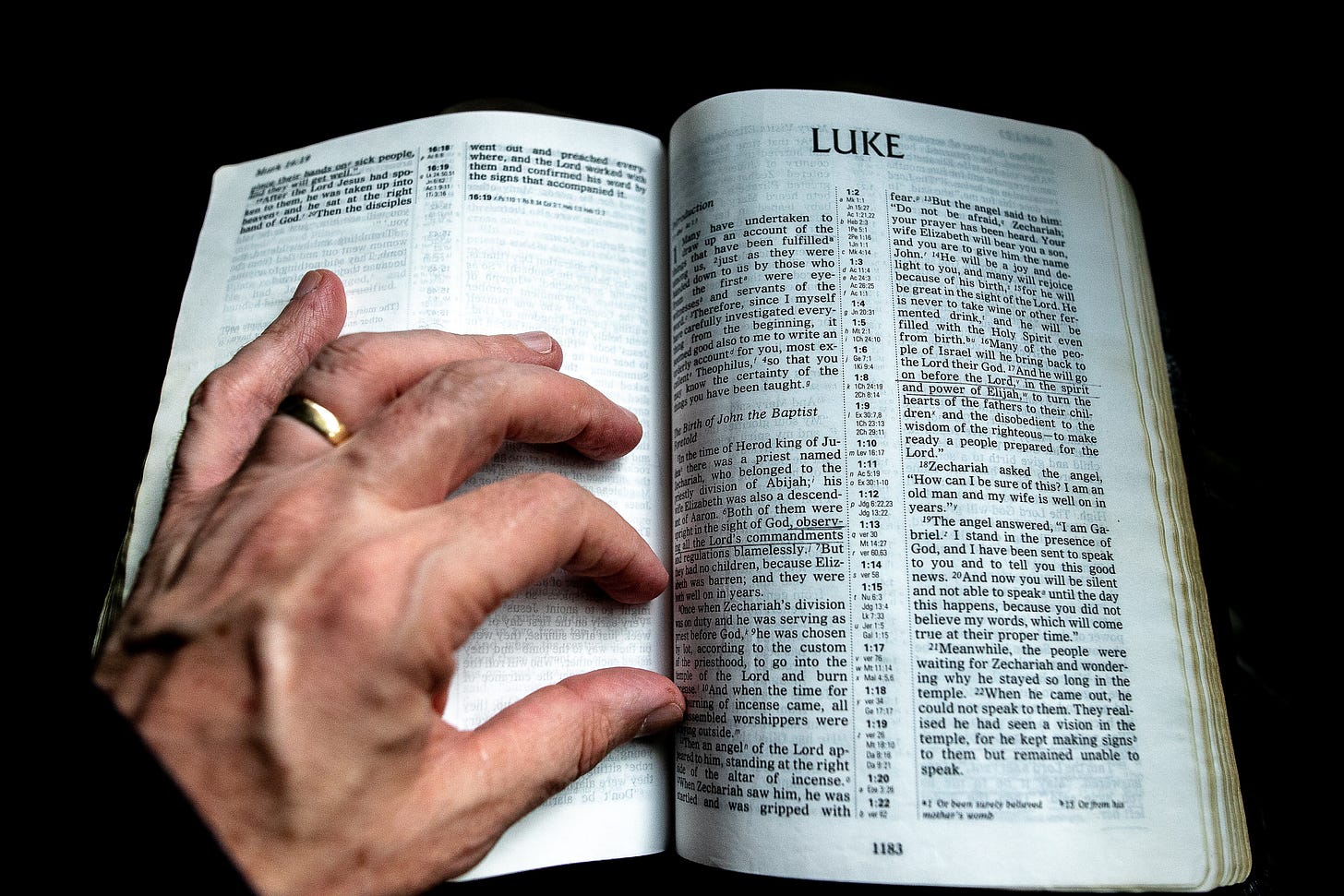Luke and Salvation - Part 1
Salvation within the World

Lucan salvation is a matter of deliverance from the travails within this world, that is, from socio-political oppression, illness, death, debt, disease, despair, and the demonic. For a start, consider Mary’s Magnificat.
His mercy extends to those who fear him, from generation to generation. He has performed mighty deeds with his arm; he has scattered those who are proud in their inmost thoughts. He has brought down rulers from their thrones, but has lifted up the humble. He has filled the hungry with good things but has sent the rich away empty. He has helped his servant Israel, remembering to be merciful to Abraham and his descendants forever just as he promised our ancestors. (Lk 1.55-55)
Even though this song takes place during the infancy narrative and is party of Christian readings during Christmas celebrations, I cannot think of a single Christmas hymn that sings about God bringing down the mighty or sending the rich away hungry. What is more, you could probably take those lines, and insert them into the middle of a pamphlet by a Jewish Marxist with a zealous faith, and you might not notice the interpolation.
In Mary’s Magnificat we have a big theological claim that God has remembered his promises to the patriarch Abraham, God’s is faithful to Israel, combined with a radical re-ordering of power, an inversion of the social pyramid, and a great reversal between the mighty and the powerless. The future kingdom will not be characterized by egalitarian equality but by a reversal of positions: Jesus says: “Indeed there are those who are last who will be first, and first who will be last” (Lk 13.30). Many persons, especially the rich, who assumed that they were going to have the best seats in the messianic banquet will not even be let in, and those thought to be unworthy, will have places of honor (Lk 13.22-30; 14.7-11, 15-23; 16.19-31).
Lest I be misunderstood, Luke is not calling for a Marxist revolution with the seizure of all private property and the nationalization of state resources. Yet, Luke expounds a salvation that includes up-ending of the social, political, and economic order in its oppressive expression, at least in the final assize with some anticipation in the present. Also, Luke is not expecting guillotines to be erected to eradicate those with too much disposable cash or someone with a nice property portfolio. Riches are a dangerous temptation and a snare that many get caught in, but even the rich and powerful need salvation, and there are positive examples of rich men who repent of their greed and avarice (18.9-14; Lk 19.1-10). As John the Baptist points out, the wealthy and powerful will be welcomed if they refrain from extortion and exploitation of others (Lk 3.10-14). As such, Jesus’s followers and devotees include tax-collectors, priests, merchants, centurions, and proconsuls. Salvation has economic expressions in terms of deliverance from deprivation, destitution, and debt, but it also embraces everyone on all levels of the economic pyramid.
In Lucan terms, salvation is indeed for Israel, their redemption, rescue, and refreshment (Lk 1.68; 2.38; 24.21; Acts 3.19), through a “horn of salvation” (Lk 1.69), who is the coming Davidic king (Lk 1.68-75), and centre piece of a restored Davidic kingdom (Lk 22.30; Acts 15.15-18 = Amos 9.11-12). But it also spills over to the Gentiles (Lk 2.32; 7.1-10; 24.47; Acts 1.8; 10.45; 11.18; 13.47; 20.21; 28.28) because a transformed Israel is to transform the world, to be, like Jesus, a light to the nations (Acts 13.47; Isa 42.6; 49.6)! The great act of liberation for Israel, will not over-throw the Herodians or the Romans, but it will create a renewed Israel, a society within a society, bearing the Spirit, carrying each other’s burdens, preaching in truth and power the truth to the power, in a new covenant, as a foretaste of the new age, and bring Gentiles into David’s renewed house. Seen through an Isaianic lens, Luke is telling the story of how “all people will see God’s salvation” as the Baptist proclaimed from Isaiah (Lk 3.6 = Isa 40.5). The messianic light shining upon Israel reflects towards the Gentiles and all who live in darkness (Lk 1.79; Acts 26.18), as Paul testified, “I am saying nothing beyond what the prophets and Moses said would happen, the Messiah would suffer and, as the first to rise from the dead, would bring the message of light to his own people and to the Gentiles” (Lk 26.22-23).

